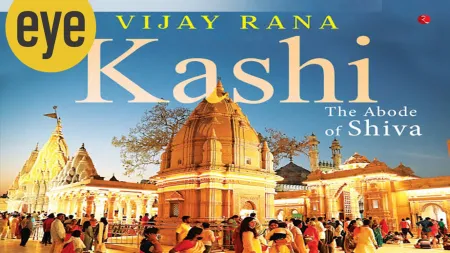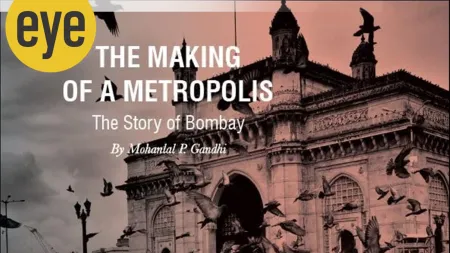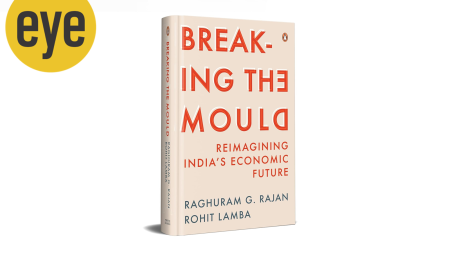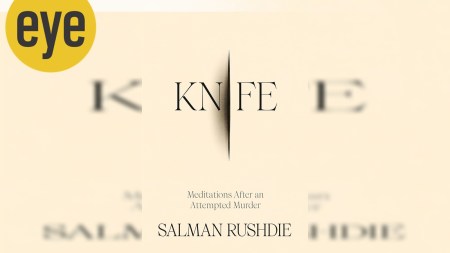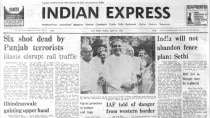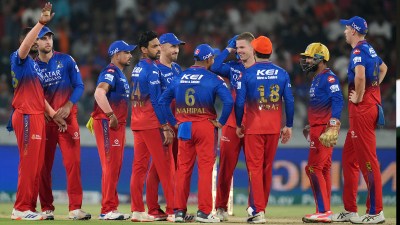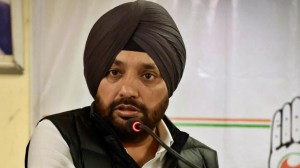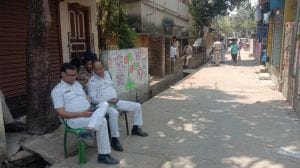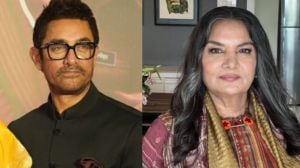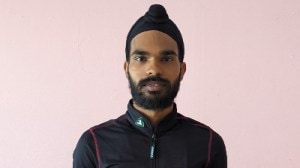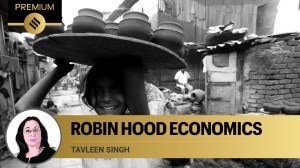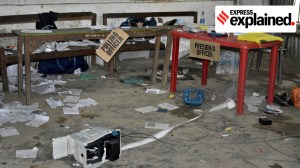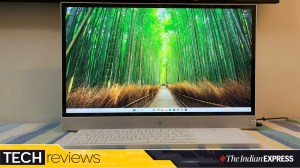- India
- International
The saviour complex of Facebook’s critics
Bhaskar Chakravorti writes: Whistleblowers and the Western media have exposed how the social media platform allows dangerous social media manipulation in developing countries. But why have they locked those very countries out of this conversation?
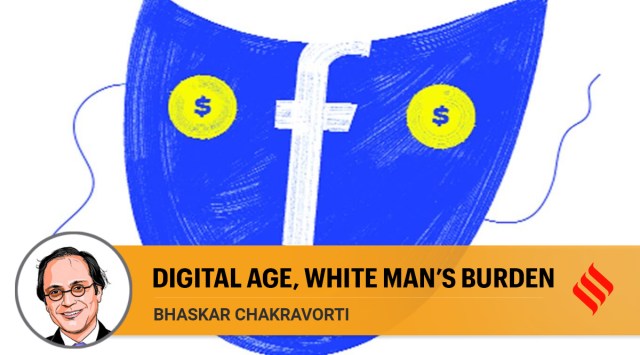 Facebook had already proven itself to be a post-colonial colonial power. (Illustration by C R Sasikumar)
Facebook had already proven itself to be a post-colonial colonial power. (Illustration by C R Sasikumar)Back in February 2019, a Facebook (yes, that is what it used to be called then) employee ran a test to understand what a new user in India would see if all they did was follow pages and groups recommended by Facebook’s algorithms. What the test revealed was horrifying: “A near constant barrage of polarising nationalist content, misinformation, and violence and gore,” according to the tester. This included Islamophobia, a man holding a severed head wrapped in a Pakistani flag, unverified images of Indian retaliatory strikes in Pakistan and battered bodies. India joins Brazil and the US in an exclusive club, “Tier zero,” for hate speech and disinformation on Facebook. The company had set up pre-election “war rooms” and dashboards to alert officials to emerging problems. Yet, despite this elite status, India has been left out in the cold not just by Facebook but by its critics as well.
Thanks to the revelations tumbling out with the Facebook Papers, we now learn that despite the elevated risk status of countries such as India and Brazil or Indonesia and Iran that bagged spots in the next tier of priority for monitoring, 87 per cent of Facebook’s global budget was dedicated to identifying misinformation solely in the US, leaving a measly 13 per cent for all others. Notably, 52.5 per cent of Facebook’s revenues from the first quarter of 2021 came from outside the US and Canada. To make things worse, thanks to the lack of Hindi and Bengali classifiers, much of the problematic content out of India never got flagged. This is a head-scratcher, as much of Facebook’s content moderation is outsourced to —drumroll, please — cheap labour from India.
Now, none of this is looking at all cool for Facebook. And, justifiably, there’s been an outpouring of outrage. We should be thankful to Frances Haugen, the former Facebook employee and now whistleblower, who made this trove available, after copying hundreds and thousands of pages of internal documents and communications while she was with the company. Haugen says she was moved to act because she was troubled by the impact of Facebook on the developing world. “I did what I thought was necessary to save the lives of people, especially in the global south, who I think are being endangered by Facebook’s prioritisation of profits over people,” she said.
But here is what’s puzzling. The sharing of Haugen’s hoard was tightly orchestrated. First, The Wall Street Journal got to take a bite and then 18 news organisations were allowed in to feed at the trough. How many media organisations that publish in Hindi or Bengali or Amharic or any of these other developing world languages — or, for goodness sake, any journalists from anywhere in the global south or publications, such as, um, The Indian Express — were part of this exclusive Facebook Papers consortium? Exactly zero.
Are Fox Business and Le Monde better situated to understand the plight of the Muslims in India or of those caught in the war between the Ethiopian government and the Tigray People’s Liberation Front? It is lovely to note that The Wall Street Journal cares enough to cover issues that go beyond those uppermost on American minds and covers stories affecting people in distant lands. Facebook has been – rightly — castigated for not investing enough on content moderators who understand the numerous developing world languages and dialects to catch problematic posts. I would like to know how many Amharic and Oromo speakers do The Wall Street Journal or Le Monde have on their staff that give them the privilege of representing the depths of this scandal to the rest of us?

The cluelessness piles on as we dive deeper into how the media covered its own coverage of the Haugen hoard. Marina Walker Guevara, executive editor of the highly respected Pulitzer Center, said that the present era’s stories – the Facebook saga being a prime example – have become “so complex and so multilayered and global” that it would be impossible to report them without a large, global network. So, let me make sure I have got this right: 18 news organisations from the West, with only two non-English speaking, one from France and the other from Germany, constitute a “large global network?” Really?
 This “large global network” devoted more space to covering how this was a breakthrough for Western journalism (their Slack group was called “Apparently We’re a Consortium Now”), congratulating itself (The Washington Post senior managing editor Cameron Barr called it “exciting”), and pondering the pressures of a consortium of competing news organisations on the verge of breaking the embargo.
This “large global network” devoted more space to covering how this was a breakthrough for Western journalism (their Slack group was called “Apparently We’re a Consortium Now”), congratulating itself (The Washington Post senior managing editor Cameron Barr called it “exciting”), and pondering the pressures of a consortium of competing news organisations on the verge of breaking the embargo.
Wouldn’t the hard-working journalists who work for and spend time on the ground in the global south have some insight into the local “dangers” and provide context and analysis in ways that might add to our understanding of this complicated phenomenon? Did Frances Haugen, her PR team, the consortium of media elite not wonder about the audacity of covering the wretchedness of social media manipulation in the global south while locking the global south out of the room? Are we now re-inventing the white (wo)man’s burden for the digital age?
It is hard to escape the sad lessons of this story. Not only does Facebook not care enough to allocate even the basic modicum of resources to ensure safety in the developing world, but even those who take on the task of bringing Facebook to task — US lawmakers and regulators, the whistleblowers, and the media with privileged access — don’t seem to care much for them either or at least trust them enough to include them.
Facebook had already proven itself to be a post-colonial colonial power. At least the officers and foot soldiers of the East India Company braved malaria and dysentery and spent time in the conquered lands and even made attempts to butcher Hindi or Bengali or all the other conquered languages to converse with the natives. Mark Zuckerberg and his crew have been quarantined in Silicon Valley from the very start and have created or acquired addictive social media products that captured the attention of billions in the global south from a safe distance. They spent precious little in time or resources to truly understand the complexities and local contexts they were in the process of altering with their products. But we knew all this already. What is new with the latest turn of this sad saga is that Facebook’s critics seem just as clueless with their own post-colonial colonial saviour mindsets.
In looking for the right word to describe this, I would use one very different from the obvious one that springs to mind: Irony. Having post-colonial colonials try to take on the gigantic post-colonial colonialist to task for its colonialism is just so, um, “meta”.
Mark Zuckerberg had it right all along. We are already in the metaverse.
This column first appeared in the print edition on November 10, 2021 under the title ‘Digital age, white man’s burden’. The writer is Dean of Global Business at The Fletcher School at Tufts University
EXPRESS OPINION
More Explained
Apr 28: Latest News
- 01
- 02
- 03
- 04
- 05





